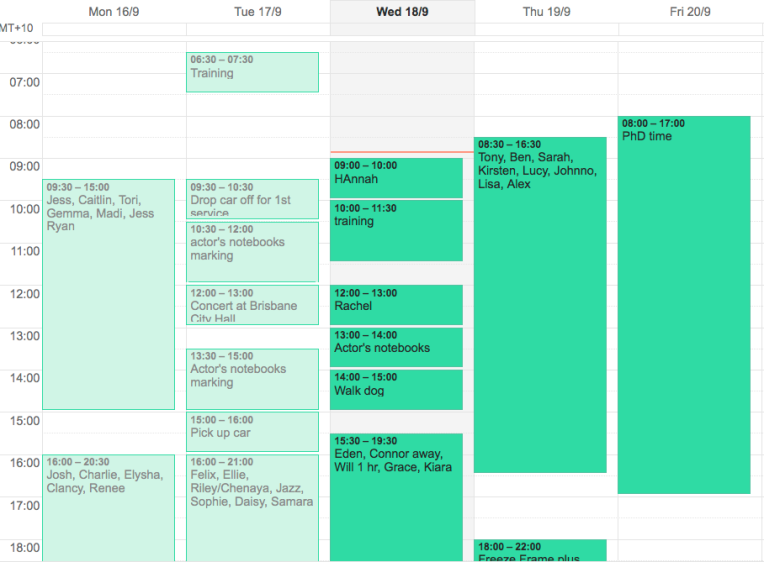This blog post reports on my research and getting to the heart of my narratives through a discussion chapter. The last three days have been, if not quite epiphanic or revelatory, at least somewhat of a relief. Because I think I’ve worked out my five main themes from my data and the narratives.
Why so long, you ask? What HAVE you been doing all this time, you ask? Well, when anything by Gary McPherson and Jerome Bruner is click-bait, it’s been hard to nut out exactly what I am trying to illuminate in my thesis without it seeming like I’m just writing stories about singing teachers and their students, without much actual analysis or understanding of my field through the usual quantitative approach.
Now, I know this isn’t really true. I DO know my field and I have carefully analysed my data through narrative inquiry methods. The problem is, the field of my investigation is large and rather unwieldy. Most sensible folk would write either about teachers OR students, not both. And so I’ve been researching motivational theories, pedagogical theories (in singing AND in general), relational theories, theories of community, theories of mind, and theories about singers and musicians. It’s easy to get stumped. And it’s easy to get confused about what I’m actually trying to illuminate.
But over the last few days, with much rewriting of my narratives, I think I’ve done it. I think I have found a way through the minefield. I’ve whittled down all my ideas to one main one – development of artistry through apprenticeship – and there are 5 main themes to emerge from my data that just about covers all the things I’ve revealed in the narratives and found in my survey. Now, I’m not going to tell you what they are, because this thesis is mine – all mine – mwha hahahaha – and you can’t nick my stuff – but suffice to say, the 5 themes are good. I hope.
I have one week to try and write my discussion chapter to a good first draft. Thereafter I need to look at my literature review again and work out what needs to stay and what needs to go. Because it’s a bit scattergun at the moment. Most of it is relevant but it’s still all over the shop. I think the discussion chapter will help cement my literature and provide an important framework for the lit chapter. I want to say all I need to say in the discussion chapter in 5500 words – that, with my conclusion, will reach 10,000 words, which is enough.
I finally have a deadline – it’s April for my talk (20 minutes – 20 minutes?! This is NOTHING.) and thereafter 3 months to prepare my thesis for submission. Which will kill me because I’m teaching full time during semester. But at least now I can see the finish-line!
So where am I? 74,000-odd words down, that’s where.
Ignore this bit below if you hate lists.
Introduction: 3,800 words (not finished)
Literature review: 14,000 words (not finished)
Methodology: 10,000 words (to revise)
Narratives: 41,500 words (final drafts)
Discussion: 1,000 words down (not finished)
Conclusion: 3,100 words down (first draft)

